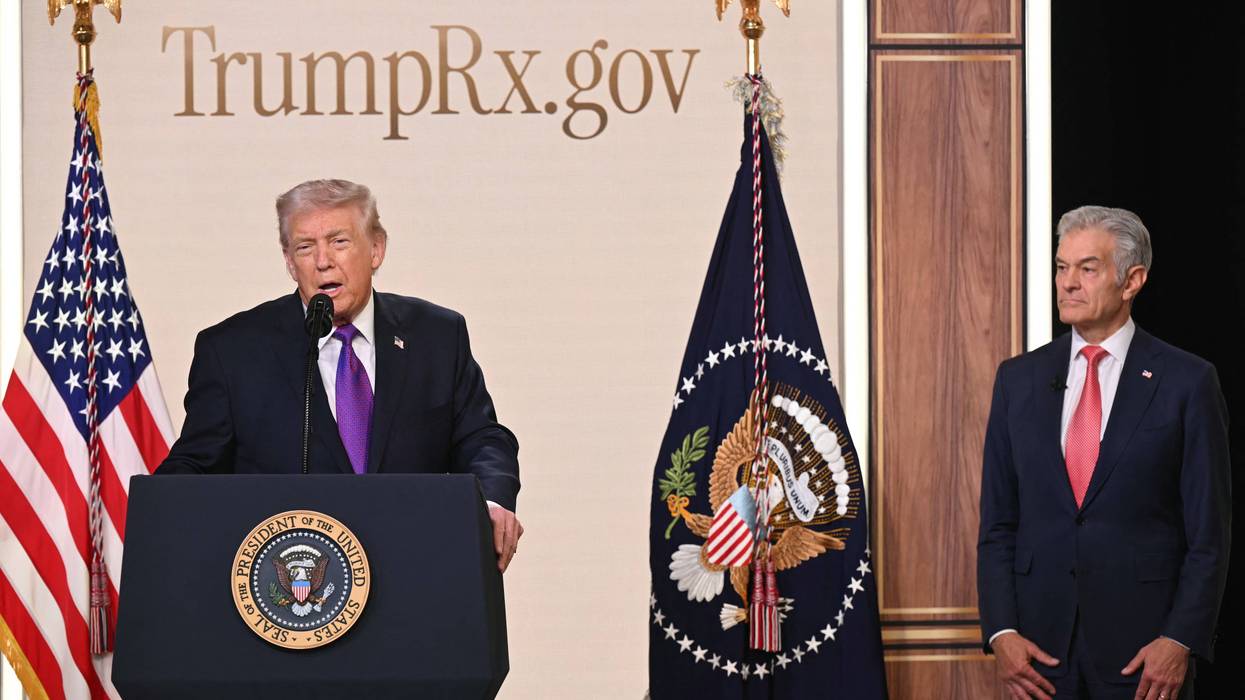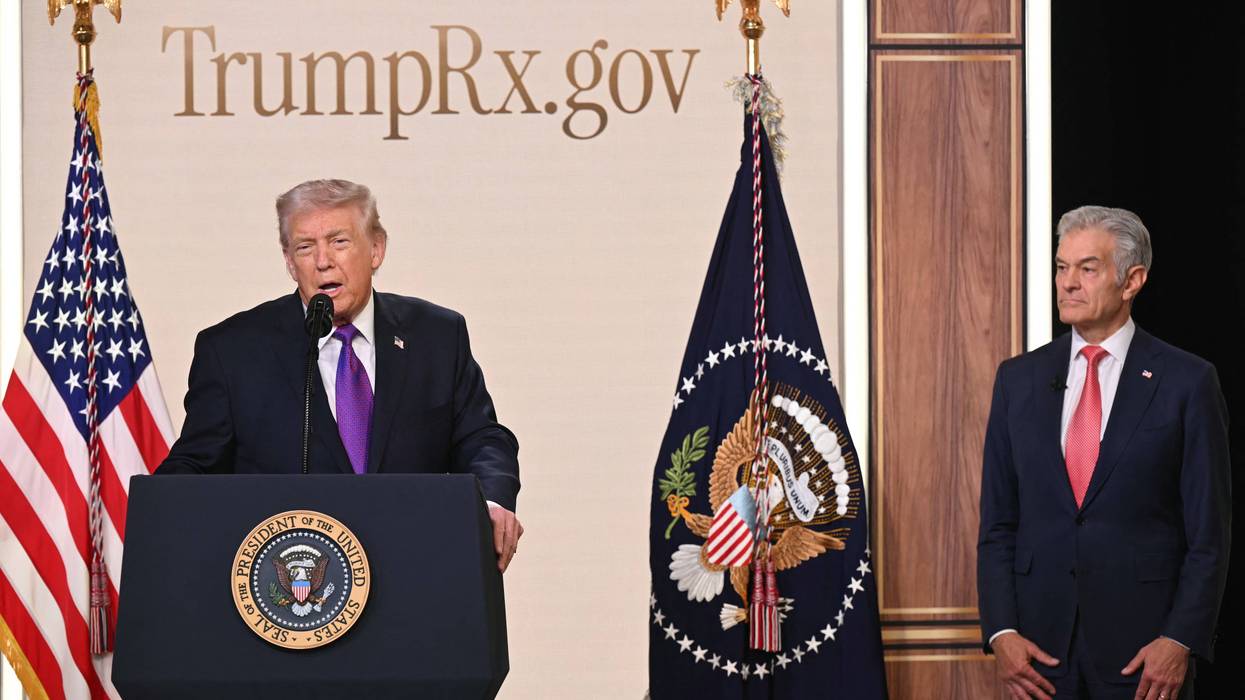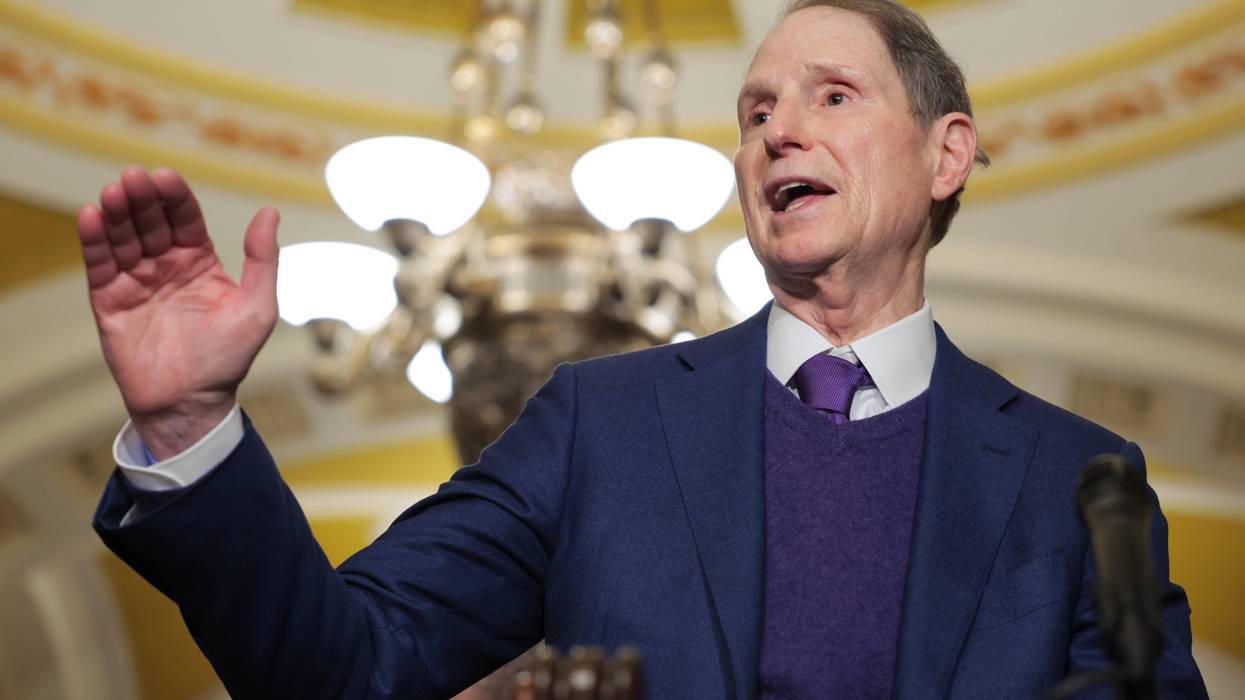Congressional Report Warns TrumpRx May Lead 'Families to Pay More to Big Pharma'
"The president should work with Democrats and Republicans to actually lower prescription drug costs for families," said Sen. Maggie Hassan, "rather than helping Big Pharma line its pockets."
Democratic members of the congressional Joint Economic Committee on Friday released a report warning that US families could end up spending thousands of dollars more on prescription drugs because of a website recently unveiled by President Donald Trump.
Launched last week with pharmaceutical companies, TrumpRx.gov is marketed as an aggregator to help patients save on prescription drugs by using manufacturer coupons or buying directly from manufacturers.
However, as the new report highlights, "many of the brand-name drugs listed on TrumpRx have significantly cheaper generic alternatives, which are excluded from TrumpRx. This means that TrumpRx steers families to pay more to Big Pharma when they could be getting the same medication at a much lower price."
"No matter what the president says, the bottom line is that TrumpRx directs families to buy expensive brand-name drugs when generic versions are available elsewhere at a fraction of the cost."
The report provides a chart comparing TrumpRx and generic prices, both for one prescription fill and the full annual cost. It also notes the difference. In some cases, the president's option is $10-50 more a year. However, there are also examples in which families could save hundreds or thousands of dollars with generic drugs.
For example, Colestid, a medication that lowers cholesterol, would cost $2,771.21 a year through TrumpRx, compared with $856.70 for the generic option, a difference of $1,914.51. The antidepressant Pristiq is $2,401.20 on the president's website, versus just $320.88 for the generic, a potential yearly savings of $2,080.32.
The biggest difference featured in the document is for Tikosyn, which helps patients maintain a normal heart rhythm. The TrumpRx annual cost is $4,032, whereas the generic is only $192.68, a difference of $3,839.32.
The report also stresses how extra costs from the president's site could stack up for households in which multiple people need medication:
- For example, if in one family a parent gets treatment for high cholesterol and their child gets treated for seizures, over the course of 2026 this family would pay $2,142 more if they use TrumpRx versus generic drug alternatives.
- For another family where one adult gets treatment for depression while the other receives treatment for menopause symptoms, over the course of 2026 this family would pay $2,493 more if they use TrumpRx versus generic drug alternatives.
"No matter what the president says, the bottom line is that TrumpRx directs families to buy expensive brand-name drugs when generic versions are available elsewhere at a fraction of the cost," said Sen. Maggie Hassan (D-NH), ranking member of the Joint Economic Committee and the Senate Finance Subcommittee on Health Care.
"The president should work with Democrats and Republicans to actually lower prescription drug costs for families," Hassan argued, "rather than helping Big Pharma line its pockets."
While the Trump White House responded defensively to the Democratic report, with spokesperson Kush Desai claiming to MS NOW that "product listings on TrumpRx.gov are in no way an endorsement for use of any prescription drug over another" and accusing Democrats of "resorting to idiotic or simply ignorant lines of attack instead of simply giving the president credit where it's due," the panel members aren't alone is highlighting such cost differences.
The added cost for US families also isn't lawmakers' only concern about TrumpRx. Last month, shortly before the site's launch, Democratic Sens. Dick Durbin (Ill.) Elizabeth Warren (Mass.), and Peter Welch (Vt.) sent a letter to the US Department of Health and Human Services Office of Inspector General raising concerns about the new direct-to-consumer (DTC) platform.
"There appear to be possible conflicts of interest involved in the potential relationship between TrumpRx and an online dispensing company, BlinkRx, on whose board the president's son, Donald Trump Jr., has sat since February 2025," they wrote. "Moreover, legitimate concerns about inappropriate prescribing, conflicts of interest, and inadequate care have been raised about the exact types of DTC platforms to which TrumpRx would route patients."
The trio also expressed alarm about high prices, noting that "pharmaceutical manufacturers who will reportedly be participating in TrumpRx have spent billions of dollars in combined advertising expenses for drugs sold on existing DTC platforms."
"The pharmaceutical industry's outrageous DTC advertisements fuel demand for specific medications, which balloon healthcare expenses," the senators wrote. "We are concerned that DTC advertising, including in relation to TrumpRx, will steer customers to prescriptions that may be reimbursed by federal health programs, creating the potential for unnecessary or wasteful spending."


